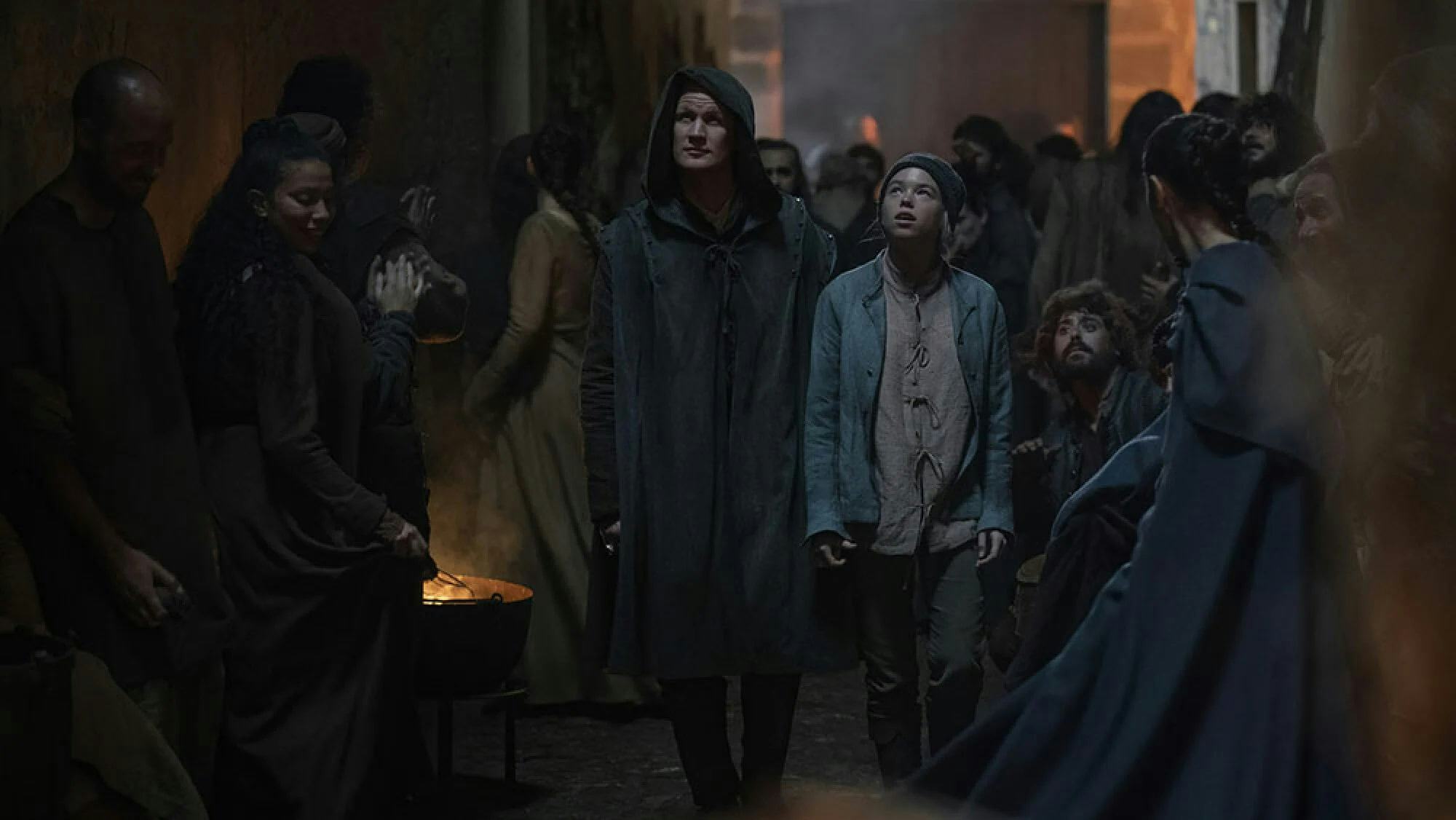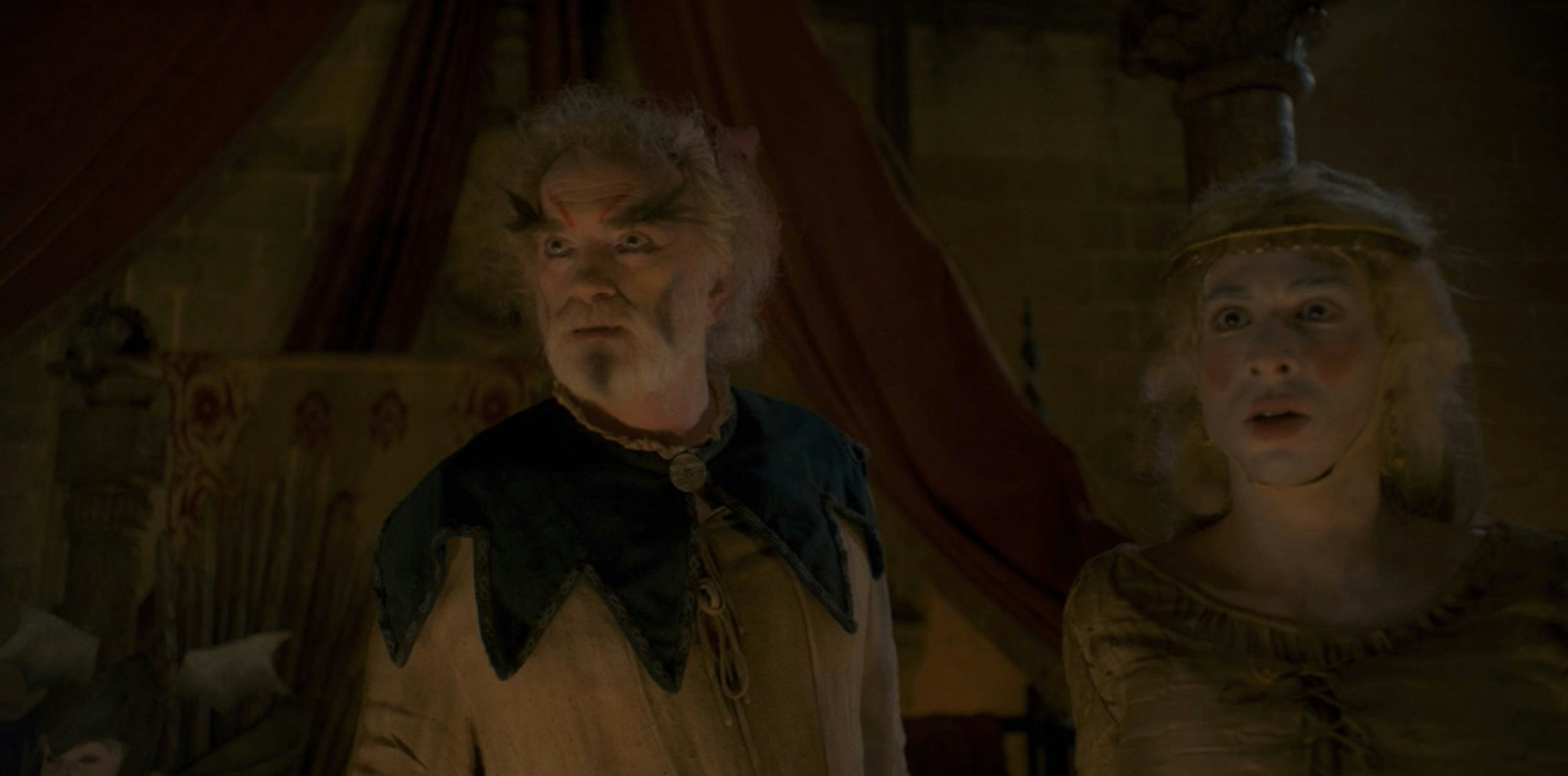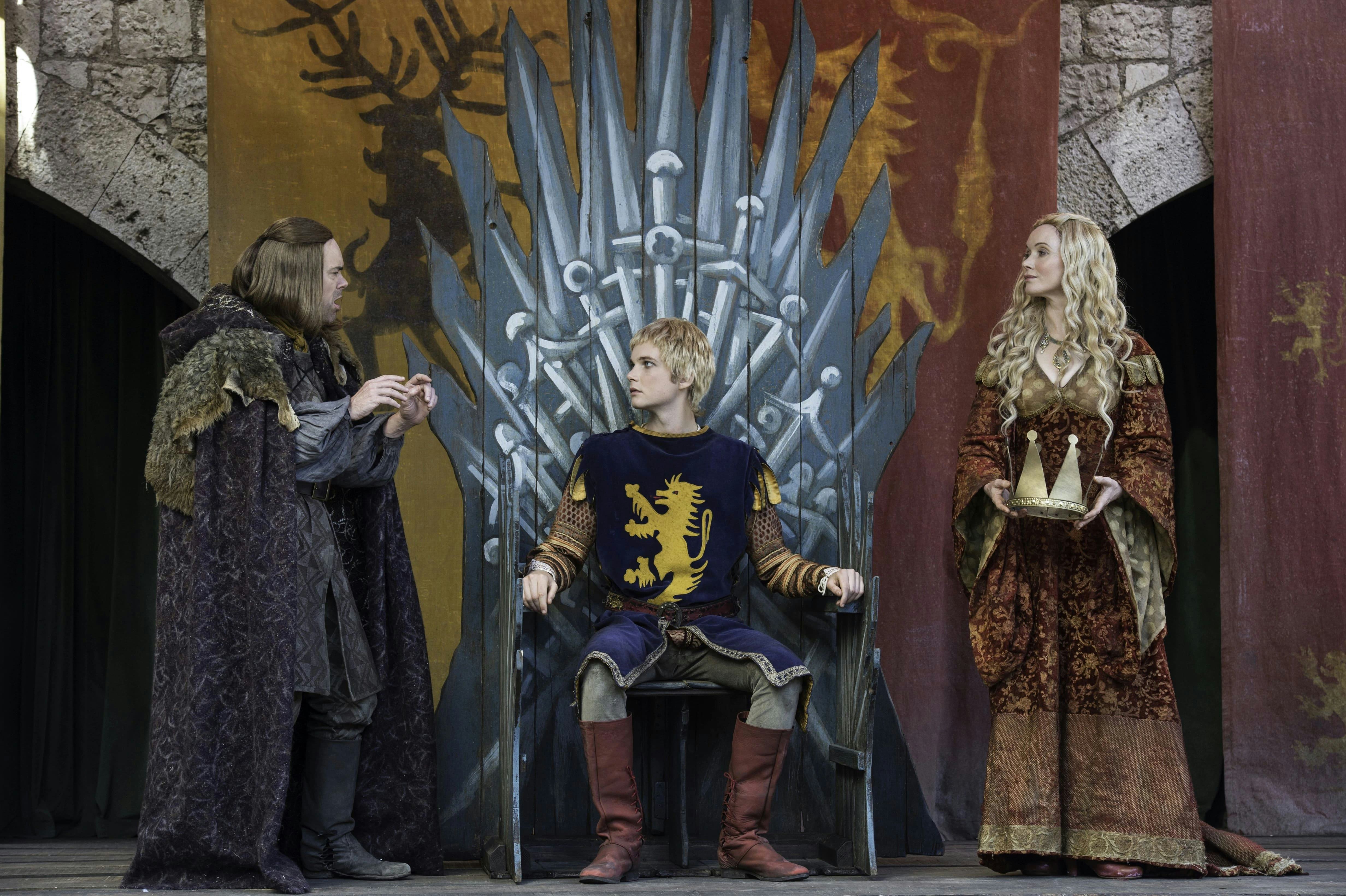
For better or worse, House of the Dragon Episode 4 brings back much of what Game of Thrones was known for. Mainly, this means steamy love affairs and a dash of incest, but there were also swordfights, very mature children, and a very ominous prophecy. However, there’s one more element that may have slipped passed Game of Thrones fans everywhere, but it's just as much a foundational part of the franchise as anything else we saw in the most recent episode of House of the Dragon. Warning: Spoilers ahead for House of the Dragon Episode 4.
When Daemon and Rhaenyra escape through the castle walls and venture out into the streets, they find all sorts of earthly delights and debauchery, but the thing that draws Rhaenyra’s attention the most is a street performance of a satirical play depicting the fight for Viserys’ succession. Actors playing all the characters we know provided a tongue-in-cheek skit catching the public up on what happened so far in the series — with a clear anti-Rhaenyra bias.

Rhaenyra is so enraptured by this performance because it gives her something she’s never really had in her life: an uncensored view of what the public thinks of her. Suddenly, the princess realizes her subjects don’t see her as the fresh-faced heiress she once was. After resisting for years, she’s finally forced to consider her reputation — especially in regard to her marriage. Simultaneously, the audience gets a clearer sense of the general consensus among the people of King’s Landing, who clearly aren’t interested in being ruled by a woman.
Game of Thrones and the theater troupe

This isn’t the first time the HBO fantasy franchise used the same trick to deliver a similar message. In Game of Thrones Season 6, Arya becomes embedded in a theater troupe after her assassin mentor Jaqen H’ghar tasks her with murdering actress Lady Crane (who plays Cersei). Arya fails in her mission due to her own compassion and is forced to watch a twisted reenactment of her father’s execution in which Tyrion is framed as the evil mastermind behind everything.
Here, the play is less for Arya’s benefit (though she does get a sense of how poorly most people view the monarchy) and more helpful for the audience. We get a clear sense of how the general population views the power struggle that kicked off Game of Thrones, along with how public perception is skewed against a character like Tyrion due to his physical differences.
House of the Dragon and the power of theater
Theater plays a similar role in House of the Dragon and Game of Thrones as it did in the early modern era and even all the way back to Ancient Greece. Theater was used to spread information and news in a way that’s still entertaining — basically the equivalent of topical comedy shows like The Daily Show today.
Behind the scenes, adding plays into the plot of these series allow the roles to essentially be “double cast” as a way to insert big-name actors doing a comedic take. In the Braavosi theatre troupe in Season 6, Essie Davis and Richard E. Grant lend their talents to the fictional stage in guest roles that fit seamlessly into the plot.
This trope isn’t limited to Game of Thrones, either. Thor: Ragnarok and Thor: Love and Thunder use dramatic re-enactments to remind the audience what happened in the past and slide in a couple of high-profile actors. It’s a perfect way to sneak in a bit of self-parody while also moving the plot forward in an interesting (and usually hilarious) way.
House of the Dragon airs Sundays at 9 p.m. on HBO and HBO Max.







